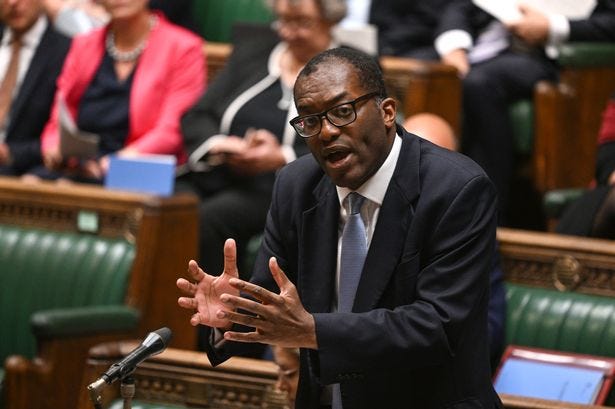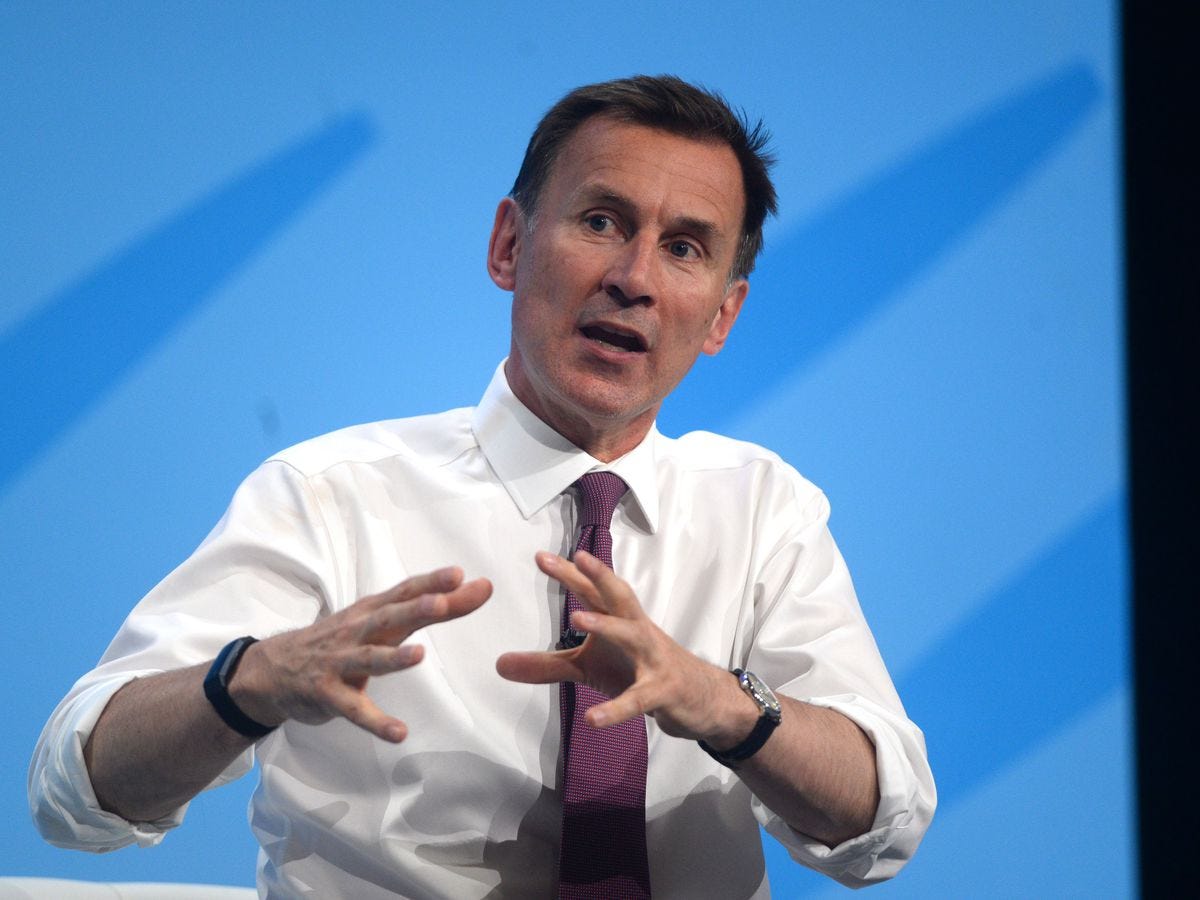Liz Truss has been Prime Minister for almost two months. It is fair to say that it has been, even by British Politics’ standards, a tough start. The Conservative Party, through political misjudgments and poor managements, have made Keir Starmer, someone commonly described as boring, look like the shining light of British Politics, the only adult in Westminster. The Prime Minister and her team, involving Kwasi Kwarteng and Jacob Rees-Mogg, have managed to, in under two months, crash the value of the pound to within an inch of its life and perform U-turns on policies they had previously religiously supported, just to name a few mistakes. They lost the faith of the markets and forced the Bank of England to purchase Government Bonds in order to save the economy. Britain’s international reputation has been tarnished, and any hope that Liz Truss may be able to do the job, have been, as predicted, squashed.
Where did it all go wrong?
Liz Truss walked into Number 10 after being in a cabinet involved in sleaze and corruption, and as leader of a party the people simply don’t trust. Fair to say, not the most preferable hand, but she still managed to make the dramatic worst of a bad situation. She announced the energy bill on her first full day in office, only hours before the House were informed that doctors were concerned for the health of the Queen Elizabeth II. Kwasi Kwarteng then went onto announce his mini budget after the end of the period when the nation mourned the death of Her Majesty the Queen. The energy bill promised to freeze household energy bills at £2,500 for a typical household, and the mini budget pledged to reverse the 1.255 increase in National Insurance.
One key area in which the government went wrong was the chaotic U-turn over the scrapping of the 45% additional rate income tax for those earning more than £150,000. After Liz Truss defended her plans to Laura Kunessburg on Sunday 2nd October, the first day of the Conference, MPs including Michael Gove and Grant Shapps refused to commit to voting for it in Parliament. This led Chancellor Kwasi Kwarteng to announce a reversal of the policy. This made Truss’ government look like amateurs, who didn’t really understand the Westminster political game. The problem was that Liz Truss did not leave long enough between her being in office and the announcement of the budget. It is true that the energy bill, announced prior to the Queen’s death, needed to be announced, and it was, but after that, Truss should have waited until the initial date of 23rd November before telling Kwarteng to announce the budget. This would have prevented her from implementing policies that led to the markets losing all faith in her, and catastrophic U-Turns wouldn’t have been necessary because the policy was not yet announced. This would have allowed her to enter the first conference of her premiership with the a gentle breeze in her sails. People would be talking about what the budget would include, not who the next Chancellor, or Prime Minister, will be.
The policy itself for Liz Truss was of low quality, it redistributes wealth upwards, rewarding the big businesses with tax cuts and using excessive borrowing to pay for the tax cuts, leaving the economy in ugly shape in the future. Following the announcement of this mini budget, market turbulence drastically increased, the value of the pound crashed, and the Bank of England had to raise interest rates and buy government bonds in order to prevent the economy from going beyond the point of no return. The fundamental problem was that the budget included too many permanent tax cuts with only a temporary solution of excessive borrowing. The markets, justifiably, had no faith in her plan, and felt they had to intervene. On the economics side of Liz Truss’ problems, it was a mix of bad policy and bad politics.
Away from the economy?
Unfortunately for the Prime Minister, away from the economics, Number 10 continues to be surrounded by storm clouds that are only getting closer. She has been widely criticised for only including her own supporters in her cabinet, until the firing of Kwasi Kwarteng, another political blunder. She has now been surrounded by a group of people who genuinely believe her to be one of the greatest Prime Ministers. Additionally, not one cabinet member supported Rishi Sunak, apart from the new Chancellor, Jeremy Hunt. Most of those who did have been sent to the backbenchers, unable to seriously influence Liz Truss’ government. The way the British political system works means that the government is dominated by the front benches. While the backbenchers can scrutinise the government via Prime Ministers Questions and select committees, they are unable to take part in the meetings in which policy is decided. They are also generally highly encouraged to vote with the government at the direction of the Whip. This suggests that Liz Truss’ cabinet is not representative of the whole party, or the whole country, meaning they will continue to face scrutiny, as they limp on with poor policies and poor execution.
What about the polls?
Polling is a good way of increasing participation numbers in Politics, and gives people another way of expressing their views, aside from voting, which is not carried out very frequently. Polls have not been positive in recent weeks for Liz Truss. Kier Starmer is convincingly ahead. He is on the verge of a Blair-like majority and the Conservatives will have to adapt to life outside Number 10 for the first time since 2010! In September 2022, Labour were at 54% compared to only 21% from the Tories on voting intention, additionally, only 37% of those who backed the Tories in 2019 intend on voting in the same way. The Conservatives have lost support, and a car crash of a Conservative Party Conference only a week after Labour looked like a steady, competent government in waiting at their conference.
The most recent news: Kwasi out, Hunt in:
This news came alongside Truss pledging to keep the rise in corporation tax, as well as her admitting she and Kwarteng made many mistakes. The news of Jeremy Hunt stepping into Number 11 is generally positive. It is important to note that Hunt backed Rishi after being kicked out of the leadership and has always been an advocate for the centre wing of the Tory Party, going toe-to-toe with Boris Johnson, someone appealing to the right-wing of the Conservatives, in 2019. This makes him the only member of the cabinet to have been in support of Liz Truss’ opponent. It is a sensible move of the PM, it shows she is willing to work with the centre wing of the Conservatives, reaching out to those she doesn’t agree with, while also not picking someone who may challenge her in the future, as evidenced in 2022, Jeremy Hunt is unlikely to make it into Number 10. Additionally, if a no-confidence vote was to occur, Hunt would be a big voice against Truss, just as he was against Boris, and would take many MPs with him to vote against her, by having him on her side, he is now unable to rile up support against her.
While the continuation of corporation tax is positive for the economy, it’s another U-turn. The damage has already been done. She will now try to lick her wounds and get on with the job, however, the U-turns only highlight the mistakes initially made. She got it wrong, it was so avoidable, but it happened.





